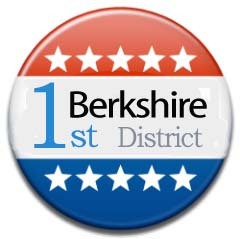| Home | About | Archives | RSS Feed |

Bissaillon: Regionalization Deserves Close Look
 |
ADAMS, Mass. — Dave Bissaillon, candidate for state representative in the 1st Berkshire District, believes that regionalization can save money and improve the quality and effectiveness of services.
In a statement released Friday, the candidate said that if elected, he would advance any such efforts that district communities pursue.
"I experienced firsthand the benefits of combining efforts when I served as Berkshire Chamber of Commerce CEO," Bissaillon said. "I led the merger of
smaller chambers of commerce and launched the Berkshire Blueprint initiative to develop a strategic plan to advance the regional economy."
For municipalities, regionalization's benefits include cost savings, greater access to basic and specialty services, and helping cities and towns more easily meet mandated responsibilities, he said.
Bissaillon noted that 1st Berkshire District communities have a history of working together to both serve the public good and steward limited municipal dollars. For example, North Adams and Williamstown's Hoosac Water Quality District have processed both communities' wastewater since 1977. The Franklin Regional Council on Governments offer a variety of services, including a cooperative purchasing program that can save towns money by volume discount buying.
"Regionalization offers a strategy for municipalities trying to maintain public services in an era when local revenues are threatened if not reduced," Bissaillon said.
"We just witnessed a small, but important example of how regionalization can help. North Adams, Adams and Williamstown recently hired a single Veteran's Agent to assist residents of all three municipalities," Bissaillon said. "This joint effort will ensure consistency in the delivery of services and meet an important need they all share."
The candidate strongly recommends that municipal officials read the report produced by Lt. Gov. Tim Murray's Regional Advisory Commission (RAC). The report chronicles the history of regionalization in the state, cites the pros and cons of this type of collaboration, illustrates recent successful examples, and amasses a range of technical information on the subject. The report is available here.
"I encourage leaders in the 11 First Berkshire communities to investigate areas in which regionalization could work to their benefit," Bissaillon said. "I recognize there can be concerns about giving up some independence, especially when jobs and longstanding ways of doing things are on the table. But greater good can result."
Bissaillon said the data presented in the regionalization study prompts questions such as:
Does our school administration model best serve our children and our budgets?
Do we have in place the most efficient system for caring for and transporting the elderly in our communities?
Is municipal finance handled most adequately town by town?
Could we do a better job with regional energy and green strategy plans?
What might be the most efficient ways to handle housing authorities in a region?
Do our local libraries take advantage of regional opportunities?
Are public health issues better addressed in a regional manner?
Bissaillon said local leaders might also consider attending the second annual regionalization toolkit conference, "A Practical Guide to Sharing Municipal Services," on Thursday, Sept. 2. Information is at www.mapc.org
| Tags: Bissaillon, regionalization |


